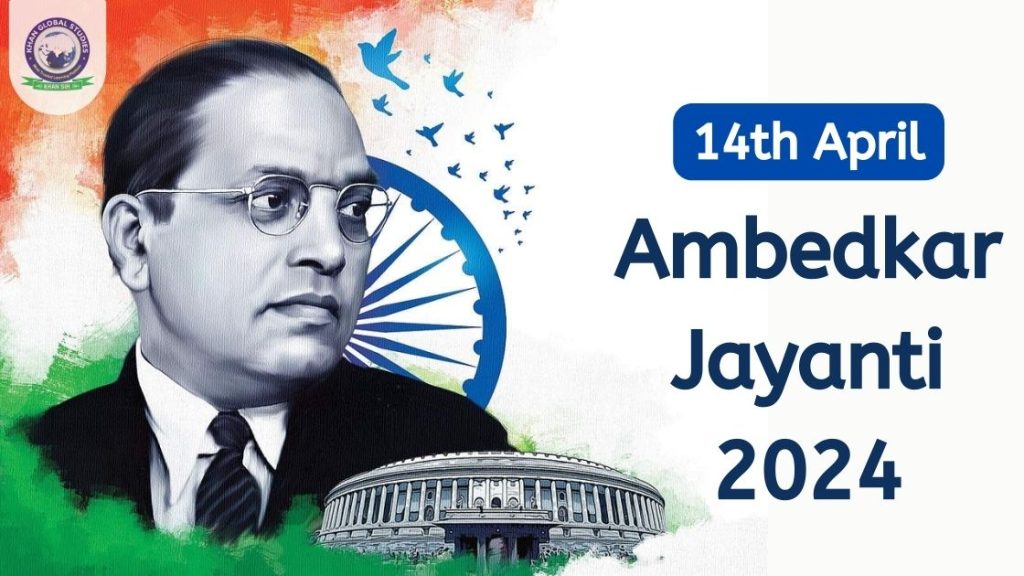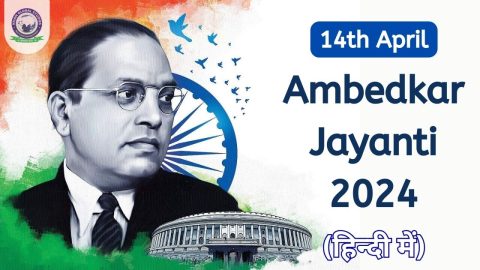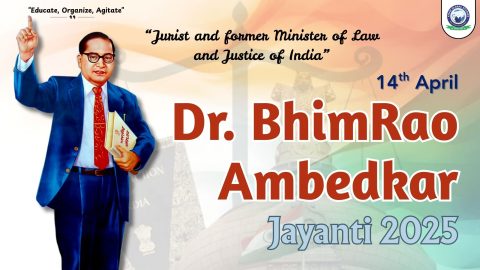Ambedkar Jayanti, also known as Bhim Jayanti, celebrated every year on 14 April, honours the memory of Dr Bhimrao Ramji Ambedkar, the first Law Minister of independent India and the principal architect of the Indian Constitution. Often referred to as the ‘Father of the Indian Constitution’, we will celebrate his 134th Jayanti on Sunday, April 14, 2024.
Ambedkar was born on April 14, 1891, in Mhow, Madhya Pradesh, now known as Ambedkar Nagar. He became a renowned voice against the injustice of India’s caste system, fighting for the advancement of Dalits and other disadvantaged groups. Her efforts to push the Hindu Code Bill demonstrated her dedication to women’s empowerment and increasing gender equality in India. Having experienced first-hand the suffering of the underprivileged Dalits in India from his early years, Ambedkar was a strong advocate for improving the condition of these people. It is said that this inspired him to fight for equality and his interests.
Why is it celebrated?
Ambedkar was a prominent figure in Indian history, as well as a jurist, economist, politician and social reformer. She dedicated her life to fighting for the rights of women and labourers as well as ending social prejudice against the untouchables or Dalits. This day, often observed as a public holiday throughout the country, is also known as Equality Day because the leader fought throughout his life for equality and fair treatment of all Indian residents under the law.
History of Ambedkar Jayanti
- First celebration in 1928: Social activist Janardan Sadashiv Ranapisay has been associated with organizing the first public celebration of the birth anniversary of Dr. Bhimrao Ramji Ambedkar, which took place in Pune on April 14, 1928.
- Growing Awareness: Celebrating Ambedkar’s birth anniversary gained greater recognition during the 1940s-80s in the mid-20th century as his influence grew. However, it was still not recognized as a public holiday.
- Increase in Adherence: Dr. Ambedkar received India’s highest civilian award, the Bharat Ratna, as a posthumous honour in 1990 and the year 1990–1991 was declared the “Year of Social Justice”. As a result of these changes, Ambedkar Remembrance Day became more widely recognized and began being celebrated informally as a holiday in various states.
- Recognition by the Central Government: The Central Government started recognizing this day on a large scale in 2020. The exact date the day was declared a national holiday is unknown, although central government departments have been observing the day as a holiday in recent years.
Importance
- Dr. Ambedkar has been associated with helping draft the Indian Constitution, which embraces the values of justice, liberty, equality and fraternity. His contribution to this effort has been widely acknowledged.
- Ambedkar’s unwavering fight against social injustice and support of the rights of marginalized castes has had a significant impact on the development of social reforms and policy in India.
- Dr. Ambedkar is known for his view that education can bring about change and promote the pursuit of knowledge to achieve social and economic mobility.
- Many events organized on this day promote Dr. Ambedkar’s dream of an inclusive society, which is also celebrated as a festival of equality.
- His legacy serves as a guide, inspiring ongoing initiatives to build a society that is more just and inclusive.





